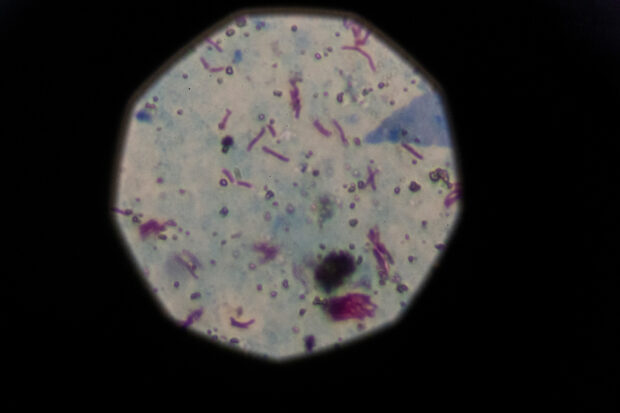Climate change hitting fight against AIDS, TB, and malaria

FILE PHOTO: A sample that tested positive for tuberculosis is seen from a microscope in Buenos Aires, Argentina, March 29, 2019. REUTERS/Magali Druscovich/File Photo
LONDON — Climate change and conflict are hitting efforts to tackle three of the world’s deadliest infectious diseases, the head of the Global Fund to Fight AIDS, Tuberculosis and Malaria has warned.
International initiatives to fight the diseases have largely recovered after being badly affected by the COVID-19 pandemic, according to the Fund’s 2023 results report released on Monday.
But the increasing challenges of climate change and conflict mean the world is likely to miss the target of ending AIDS, TB and malaria by 2030 without “extraordinary steps,” said Peter Sands, executive director of the Global Fund.
READ: World leaders pledge billions to fight AIDS, tuberculosis, malaria on UN sidelines
There are positives, he said. For example, in 2022, 6.7 million people were treated for TB in the countries where the Global Fund invests, more than ever before, and 1.4 million more people than in the previous year. The Fund also helped put 24.5 million people on antiretroviral therapy for HIV, and distributed 220 million mosquito nets.
Article continues after this advertisementBut in a statement accompanying the report, the Fund said that getting back on track after the pandemic had been made “much more challenging by a combination of interconnected and colliding crises,” including climate change.
Article continues after this advertisementREAD: COVID-19 has ‘devastating’ impact on fight against HIV, TB, malaria – Global Fund
For example, malaria is spreading to highland parts of Africa that were previously too cold for the mosquito carrying the disease-causing parasite. Extreme weather events like floods are overwhelming health services, displacing communities, causing upsurges in infection and interrupting treatment in many different places, the report said. In countries including Sudan, Ukraine, Afghanistan and Myanmar, simply reaching vulnerable communities has also been immensely challenging due to insecurity, it added.
But Sands said there was still hope, partly due to innovative prevention and diagnostic tools. This week, there is a high-level meeting on TB at the UN General Assembly, and advocates hope for more of a focus on the disease.